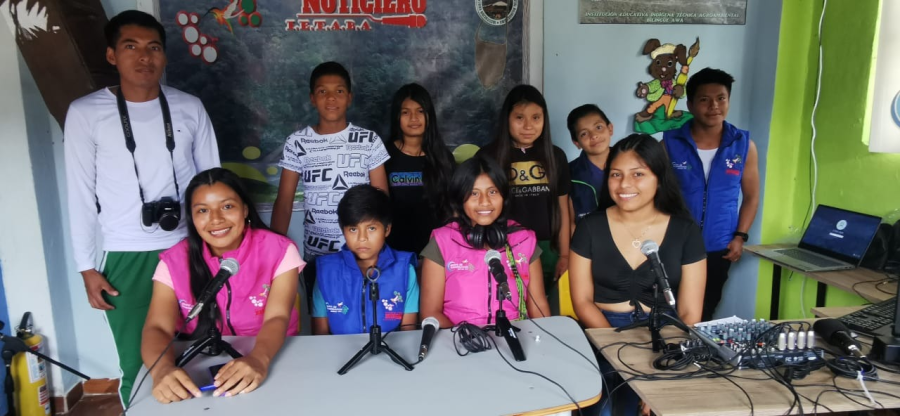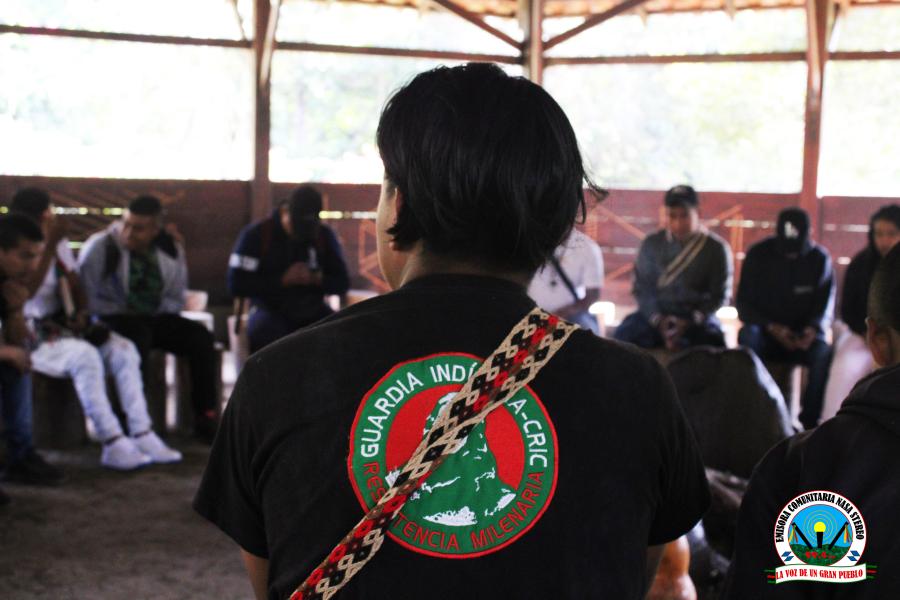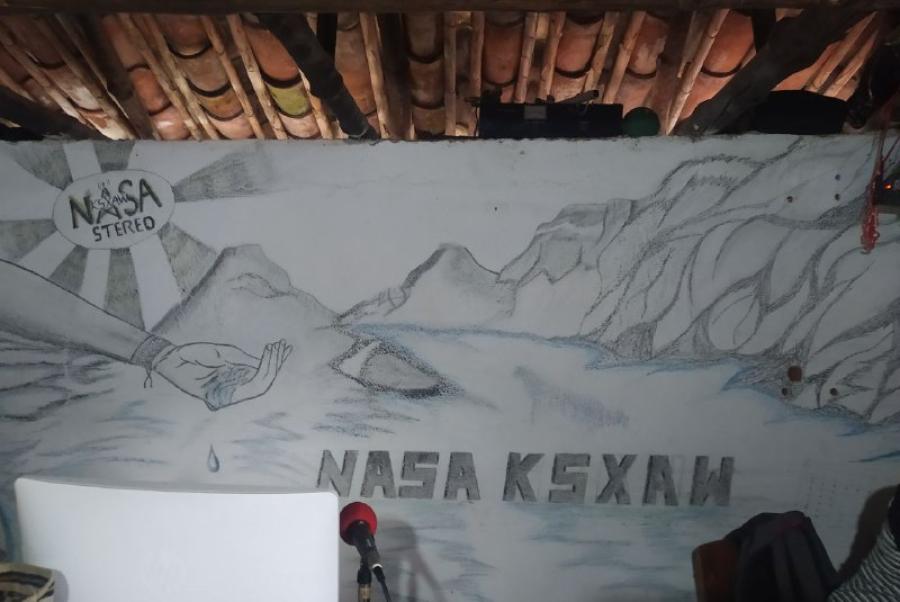One of Cerrejón’s key claims in justifying its refusal to recognize the collective rights or even the collective existence and identities of the communities around the mine is that they are not, in fact, indigenous or Afro-Colombian.
“In Colombia, the state regulates and legitimates the ethnic categories that people belong to,” Juan Carlos Forero, the company anthropologist, told us in August, 2006. “After the Europeans came to America, a multicultural population was created, which incorporated African-origin groups, the indigenous communities that were already here, and the Europeans who arrived. In the Guajira, the Afro groups became part of a large peasant group, made up partly of African ethnicity, and partly of the indigenous communities already present in the Guajira. We can’t establish the Afro-Colombian identity of a group that is really made up of peasants, and whose economic, cultural, and social models belong to what we call a ‘mestizo Guajira’ pattern.”
When we talked about the case of Tamaquito, a Wayuu indigenous community, company lawyer Marta Peñalosa added her voice to the discussion. “Tamaquito is a group of indigenous families, it’s true,” she said. “But they are outside of the ancestral lands of the Wayuu of the Guajira, and they settled in Tamaquito in order to work there. Nobody denies that they are indigenous families. We did a study of Tamaquito, and we have historical and documentary evidence that there used to be only two or three indigenous families there. Then it began to grow. The study did not show that Tamaquito was an indigenous community, even though today it is clearly a village made up of indigenous people. Obviously, the village has grown.”
The lawyer grew a bit heated as she expressed her outrage that indigenous peoples would move or that an indigenous community would grow. She was apparently unaware that the Wayuu have historically maintained poly-residential, semi-migratory patterns in their desert-like homeland, or that in fact their “ancestral lands” covered much more territory before they were driven off by Spanish and mestizo colonizers. “I assure you that I am not a proponent of human rights violations!” she exclaimed indignantly. “I am a profound believer in human rights. But I also believe in the law. I believe in proof!”
Forero is quite right that the Colombian state defines ethnicity. But Cerrejón’s use of ethnic categories and ethnic definitions to deny people rights severely subverts the intent of Colombia’s 1991 constitution. The inclusion of definitions of ethnicity, and the guarantee of rights to ethnically defined communities, represented the culmination of years of struggle by Afro-Colombian and indigenous organizations. It is bitterly ironic that these same definitions and guarantees are being used to deny Afro-Colombian and indigenous communities their rights.
Law 70, which was passed in 1993 to formalize the requirements of the constitution regarding Afro-Colombian communities, defined a black community as “a group of families of African descent that possesses its own culture, shares a history, and has its own traditions and customs . . . who demonstrate and conserve a consciousness of their identity that distinguishes them from other ethnic groups.” Black communities must show “collective land tenure,” meaning “historic and ancestral settlement and collective use of the lands that constitute their habitat,” and they must “practice traditional forms of production,” that “conserve the land and contribute to its sustainable development.”
It’s highly unusual for national law to define people of African origin in the Americas in these terms, which are more reminiscent of how indigenous communities in the Americas have been defined. The particular history of people of African origin in Colombia, and the forms of political consciousness that grew in the second half of the 20th century, explain why this occurred.
Unlike most of the Americas, in Colombia, especially in the Pacific Coast region, people of African origin have, since colonial times, coexisted and formed small rural communities in areas that were also home to indigenous populations. Like indigenous communities in many parts of Latin America, Afro-Colombian communities were engaged with Liberation Theology in the 1960s, and participated in a process of consciousness-raising (conscientización), political organizing, and ethnic identity building. In the case of Colombia, they participated in the process leading up to the 1991 constitution by publicly claiming an identity based on ancestral ties and collective ownership of the land, and of being the caretakers of the fragile tropical forest ecosystems of the Pacific Coast.
The purpose of Law 70 was to guarantee collective land rights to some of the most marginalized people in Colombia. In the hands of multinationals, though, it has been twisted to deny these same rights, by denying their cultural and ethnic identities. “Peasants are different from Afro-Colombians,” Forero insisted, explaining why the mine refused to negotiate collectively with the communities. “They have developed a very different way of relating to nature. The way that they construct their culture is also different, economically, in religious terms, socially, and even politically. From the perspective of anthropology we can see that a peasant has a different manner of establishing their land from an Afro-Colombian. Colombian law defines precisely when a community with an African origin and cultural identity can be elevated to the category of Afro-Colombian. A peasant doesn’t behave like an Afro-Colombian. And for Colombia, and for the Colombian government, a peasant is not the same as an Afro-Colombian.”
“It’s not a question of denying who they are,” the company’s lawyer elaborated. “But there are some legal requirements they have to fulfill to be an Afro-Colombian community. Just imagine if there were two or three people of the dark race here, and they wanted to say that this was an Afro-Colombian community! There are rules and regulations. It’s certainly not that we want to deny it. They just aren’t; they aren’t.”
One of our delegation members pointed out the speciousness of the company’s insistence on the issue. “Whether they’re Afro-Colombian or indigenous or anything else, the fact is, it’s very, very important to treat people with the dignity and respect that all human beings deserve, regardless of their stature in society. These people had the land, and if they feel that they have not been properly dealt with, it’s important for the mine to listen to them and to try to right the wrong . . . It doesn’t matter if they’re Afro-Colombians, it doesn’t matter if my family moved down here and you did it to me! The fact is that you did it to another human being; it’s really important to fix it.”



